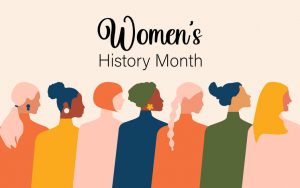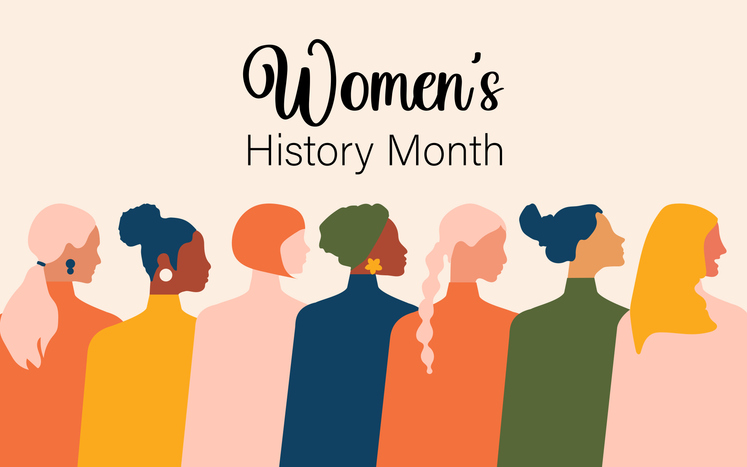By Yasoda Sharma, PhD, MSW
March is recognized as Women’s History Month, with the 2024 United Nations theme being “Invest in Women, Accelerate Progress.” Women worldwide face numerous challenges, underscoring the urgent need for comprehensive actions to empower them. Investing in women is the pivotal first step to drive change and accelerate the transition towards a just, safe, and more egalitarian society for all.

Women’s History Month. Women of different ages, nationalities and religions come together.
Women’s History Month offers a dedicated time to recognize and celebrate the contributions and achievements of women throughout history and in contemporary society. It highlights the often-overlooked roles that women have played in various fields, including politics, science, literature, arts, and more. Additionally, it provides an opportunity to educate people about the struggles, challenges, and triumphs that women have faced in their pursuit of equality and recognition. It helps raise awareness about issues such as gender equality, women’s rights, and the need for diversity and inclusion.
By showcasing the accomplishments of women from diverse backgrounds and experiences, Women’s History Month inspires and empowers individuals, especially female identifying people, to pursue their goals and dreams without limitations based on gender. It serves as a reminder of the ongoing fight for gender equality and encourages individuals and organizations to take action to address gender inequities or discrimination and promote inclusivity in all areas of society. Overall, Women’s History Month is significant as it amplifies women’s perspective, recognizes their achievements, and promotes gender equality and inclusivity.
The observance of International Women’s Day began in Europe in 1911 amidst fervent discussions on women’s rights. However, attention to women’s rights waned during the economic depression of the 1930s. The modern celebration of women’s history traces its roots back to the 1970s, driven by a growing recognition among women that mainstream history education marginalized their stories. The call for inclusivity in history education, alongside efforts to elevate the histories of African Americans and Native Americans, underscored the absence of women in historical narratives. Consequently, many universities started offering courses in women’s history and women’s studies.
In 1978, the Education Task Force of the Sonoma County Commission on the Status of Women in California initiated a “Women’s History Week” celebration, coinciding with International Women’s Day. The positive response led schools to organize their own Women’s History Week programs. Subsequently, in 1982, the United States Congress established National Women’s History Week, later expanding it to a month-long observance.
In 1998, Congresswoman and social worker Barbara Lee, representing California’s 9th Congressional District began advocating powerfully for women’s issues in Congress. Her dedication to addressing national and global women’s issues, including health, equal rights, and economic equality, garnered international recognition.
In 2005, she was nominated for the Nobel Peace Prize as part of the international project, 1000 Women for Peace.
NASW has consistently supported women’s issues and proudly acknowledges Women’s History Month. The NASW’s National Committee on Women’s Issue is responsible for developing, reviewing, and monitoring programs within the Association that significantly impact women. We urge governments, donor agencies, and other stakeholders to prioritize investment in women, especially in social workers who provide crucial and transformative services during crises. By collaborating with women leaders in communities, and providing them with necessary resources, support, and recognition, we can collectively expedite progress towards achieving gender equality, social justice, and sustainable development. Let’s take this opportunity to endorse our commitment to investing in women and advance their potential to create a brighter future for all. Let’s focus on the UN Commission’s Status of Women’s priority theme of “Accelerating the achievement of gender equality and the empowerment of all women and girls by addressing poverty and strengthening institutions and financing with a gender perspective.”
Yasoda Sharma, PhD, MSW, is Interim BSW Program Director and a professor in the Department of Social Work at Kutztown University of Pennsylvania.




